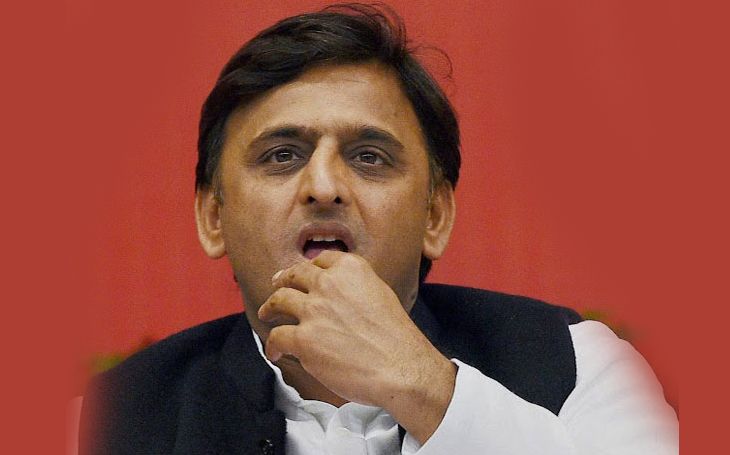A recent report released on the Muzaffarnagar riots has exposed the inefficiencies and the anti-Hindu bent of the Samajwadi Party government under Akhilesh Yadav in case of 2 Hindu youth who were murdered in Kawal. The report raises several serious questions on Akhilesh Yadav and his administration which ruled for the period from 2012-17. In the report, it has been indicated that in the riots during the tenure of Akhilesh Yadav, the Samajwadi party government had registered a total of 40 cases against Hindus while only one case was filed against the Muslim side. Of the total 41 cases filed, a local court has ruled in favor of individuals from Hindu community in all the 40 cases, while in the one remaining case the court had found the individuals form the Muslim community guilty.
https://twitter.com/ippatel/status/1152427868007235585
According to the report the 5 prosecution witnesses refused to testify, for which they claimed that they were not present during the incident on the location. They have also claimed that they were made to depose under pressure, the witnesses also claimed the police had then taken their signatures on blank papers and had presented them as witnesses.
Earlier, according to an Indian Express report, six years after the Muzaffarnagar riots, a local court had declared seven people guilty for killing two Hindu youth. The murders had taken place in Kawal village and triggered the 2013 Muzafarnagar riots that claimed the life of 63 people and displaced over 40,000.
Additional District and Sessions Judge, Himashu Bhatnagar, convicted seven muslim men namely, Muzammil, Mujassim, Furkan, Nadeem, Janangir, Afzal and Ikbal for killing Gaurav and Sachin on August 27, 2013, and rioting. The quantum of their punishment will be announced on Friday.
The court convicted the members of the muslim mob in Muzaffarnagar after examining 10 prosecution witnesses and six in their defence. After hearing the judgment, Gaurav’s mother burst into tears and said, “I only want death sentence for accused men. They killed my son for no reason. I want justice. We lost everything, have not celebrated one festival since the incident. There is no happiness; my daughter is left now without a brother. Only justice will bring relief.”
The Muzaffarnagar riots were a big blot on the erstwhile SP government led by Akhilesh Yadav. The flash point had not only exposed loopholes in their handling of law and order but some of the decisions taken by them post the mayhem were undoubtedly controversial.
The first incident happened on August 27th, 2013, when the Akhilesh Yadav’s SP government was very slow to react and sluggish in their response as additional forces were called nearly a week later. By that time armed-mobs had been mobilized and widespread killings had already begun. Vandalism and arson became the order of the day. The entire district came to a screeching halt, despite any government directives. In 3 days, the situation was fully out of control. That the riots continued for 3 more days even after the army was summoned, speaks volumes about the number of people who must have been partaking in this mad blood fest in Muzaffarnagar. Eventually, the police made 10,000 to 12,000 preventive arrests, seized 2,000 arms, and filed seven cases under the National Security Act. However, it was too late as the communals riots in Muzaffarnagar had already done severe damage.
Interestingly, news channel Headlines Today (India Today) had carried out a sting operation against erstwhile UP cabinet minister Azam Khan, where he had allegedly ordered the release of Muslims involved or accused in the Muzaffarnagar riots. The minister had denied these allegations as expected, but it had symbolized the dubious nature of investigations into this matter. Importantly, the justice Vishnu Sahai’s inquiry commission report has listed the reasons for the Muzaffarnagar riots after the deaths of three young men Shanawaz, Gaurav and Sachin in Kamal village of Muzaffarnagar on 2013. The report also had added that the release of 14 Muslim youth, not named in the FIR relating to the murders of Gaurav and Sachin, was seen as an attempt by the state government to appease the minority community.
